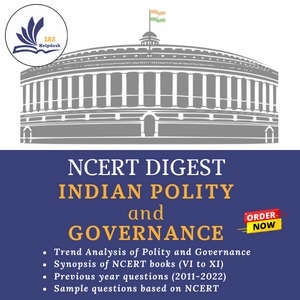Delimitation Commission in India
Description
Delimitation Commission in India: Significance,
Composition, and Constitutional Process
Description:
"Discover the critical role of the Delimitation Commission in India, its
composition, and its constitutional process in ensuring fair and equal
representation based on population changes. Learn about its significance and
challenges in our comprehensive article.
What is Delimitation?
Delimitation is the act or process of establishing the boundaries of territorial constituencies in a nation to reflect changes in population. The Commission must operate independently of executive direction.
Composition of the commission
The Indian President appoints the Delimitation Commission, which cooperates with the Indian Election Commission.
• Retired Supreme Court judge
• Chief Election Commissioner
• Respective State Election Commissioners
Why is it needed?
• Delimitation helps in redrawing the boundaries (based on the data of the last Census) in such a manner that the population of all the constituencies, as far as practicable, remain equal throughout the State/UT.
• Also, it ensures a fair division of geographical areas so that all political parties or candidates contesting elections have a level playing field in terms of a number of voters.
Constitutional Process of Delimitation
Under Article 82, the Parliament enacts a Delimitation Act after every Census.
Under Article 170, States also get divided into territorial constituencies as per Delimitation Act after every Census.
Once the Act is in force, the Union government sets up a Delimitation Commission.
The first delimitation exercise was carried out by the President (with the help of the Election Commission) in 1950-51.
The Delimitation Commission Act was enacted in 1952.
Delimitation Commissions have been set up four times — 1952, 1963, 1973 and 2002 under the Acts of 1952, 1962, 1972 and 2002.
Significance of delimitation
• It has been regarded as having absolute jurisdiction, and any court or piece of legislation can never overturn a decision made by this commission.
• A legislatively supported body that functions independently of the executive branch and political parties is the Delimitation Commission.
• To ensure that the population is roughly equal throughout all constituencies, it establishes the number and boundaries of constituencies.
• Identifies seats in areas with a significant population that are reserved for Scheduled Castes and Scheduled Tribes.
Issues and challenges of delimitation Commission
States that don’t care about population control might end up with more seats in the House of Representatives. States in the South that supported family planning ran the risk of having fewer seats available.
The number of seats in the Assemblies and Parliament that were decided upon in 1971 remained the same despite delimitation being done in 2008 based on the 2001 census.
In accordance with the constitution, there are a maximum of 550 Lok Sabha seats and 250 Rajya Sabha seats, respectively, and growing populations are each represented by a single representative.
Conclusion
The delimitation commission’s main duty is to redraw the boundaries of each assembly and Lok Sabha seat in light of a recent census.
Although it was anticipated that the limit on the number of Lok Sabha and Assemblies seats would be lifted after the 2001 Census, an amendment delayed it until 2026. This was supported by the prediction that by 2026, the nation’s population growth rate would be uniform.
Here is a link to an article on The Anusandhan National Research Foundation Bill, 2023

